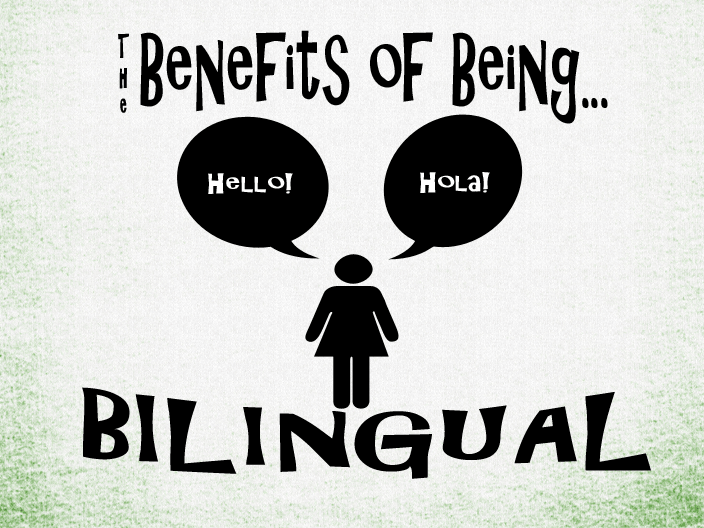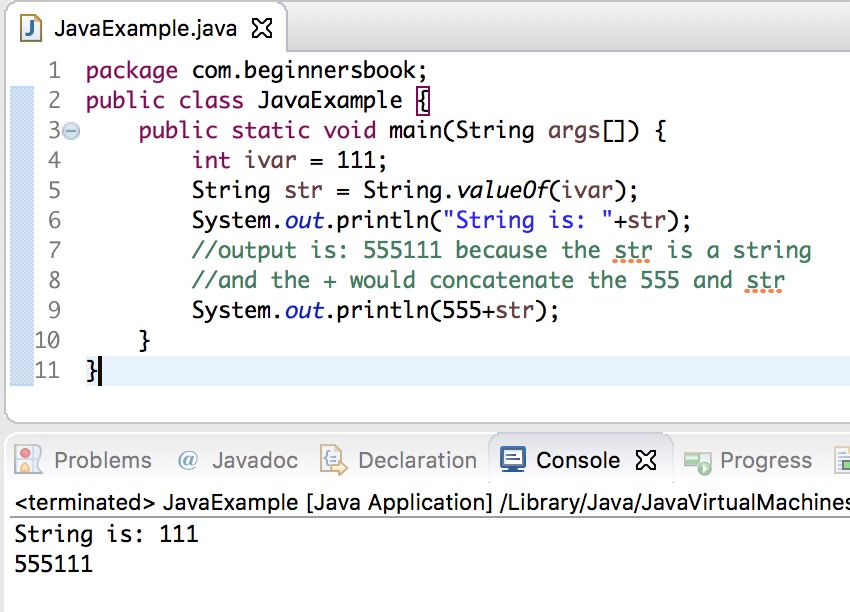Research on associations across older adults' personal preferences for friendships and their social needs, health, and well-being point to many possibilities for friendship interventions related to the elements of the integrative conceptual framework for friendship research described previously. Earlier life experiences and current age-related life events can affect older adults' social needs, their friend networks, and their friend-related cognitive, affective, and behavioral processes (Blieszner & Ogletree, 2017; Wrzus et al., 2013). The convoy model of relationships (Antonucci & Akiyama, 1987) provides another approach to analyzing old age friendship and support interactions, connecting both interactive and structural aspects of relationships.
It focuses on differences in perceived level of closeness, allowing for comparisons across types and functions of friendships as well as across stages of the life span (Antonucci & Akiyama, 1995). Using the convoy model, Piercy and Cheek investigated friendships among middle-aged and older women who belonged to quilting bees and guilds. They found evidence of strong and supportive friend convoys with interaction patterns suggesting these friends would have enduring positive effects on the women's well-being into oldest age. Levitt, Weber, and Guacci examined social support (e.g., confiding, reassurance and respect, assistance, advice) from friends versus relatives across the social network structures of family triad members from three generations. The mothers and grandmothers tended to report fewer friends than relatives in their networks and to receive less support from friends as compared with the youngest women.
This pattern held across cultures, as both English-speaking and Spanish-speaking women reported similar network structures and sources of support. A recent meta-analysis by Wrzus, Hänel, Wagner, and Neyer confirmed these cross-generational differences in network structure (i.e., size) via a meta-analysis of data in 277 studies from 28 countries. Social exchange theory, the convoy model of relationships, and socioemotional selectivity theory have been the most common guides for research on the processes of friendship development and sustainment. Early studies of friendship dynamics in old age were grounded in social exchange theory (e.g., Roberto, 1989; Roberto & Scott, 1986), which posits that social interactions involve costs and benefits that participants assess as they establish and sustain relationships. The types of resources exchanged (Blieszner, 1993; Shea, Thompson, & Blieszner, 1988) and the preferred and actual extent of equity and reciprocity in social exchanges are also considered in friendship research conducted from this perspective.
Li, Fok, and Fung examined age group differences in the association between emotional and instrumental support balance in relation to support received from friends versus family, and the implications for life satisfaction. Friendships were evaluated by older and younger adults as more reciprocal than family ties, in keeping with the more voluntary nature of friendship. However, older adults reported higher life satisfaction when they felt emotionally over-benefited in friendships, whereas younger adults' life satisfaction was associated with reciprocity in emotional support exchanges with friends. The general assumption that equity in exchanges is preferable did not apply to the older adults in this study, reflecting the premises of socioemotional selectivity theory, discussed later. Although many theories of interpersonal attraction and relationship development could inform late-life friendship research, relatively few have guided these investigations.
Social network theory, which focuses on predictors of the structure of relationships rather than on their dynamics, is relevant to understanding friendship opportunities and constraints at any stage of life. Relatively little is known about structural features of friendship dyads and networks, though, because empirical studies guided by social network theory usually have not distinguished between friends and other close ties. Nevertheless, some research on structural features of late-life friendship exists. For example, Adams studied changes in the friend networks of old women over 3 years and found interesting patterns of both expansion and contraction of the network membership and also intensification and weakening of emotional bonds among friends in the network.
These changes in network size and closeness varied by the women's demographic characteristics, namely social and marital statuses. This finding shows that friend bonds are affected not only by personal choice, but also by external influences. Thus, investigations of structural features of friend networks reveal the range of similarities and differences across groups of older adults based on cultural contexts, personal characteristics, and situational features of interactions with current or potential friends. People might devote more resources to their friends and have higher quality relationships if they value friends and find them important (Roberts et al., 2005). Or people might find friends important because they have high quality relationship and their friends hold vital roles in their lives. Indeed, there is some evidence that when friendships are evaluated as important, people experience well-being benefits.
For example, feeling committed to the role of being a friend is positively related to life satisfaction, even when controlling for ostensibly more detailed measures of social network involvement (e.g., support network density; Siebert et al., 1999). Thus, we are treating friendship importance—the degree to which people find friends important and value them—as a proxy for how much people investing in friendships and likely how good friendships are. However, we do acknowledge that specificity is lost in this trade-off for an increased understanding of the instrument across cultural settings. Although there are relatively few studies that investigated how valuing friendship might influence their behaviors and important life outcomes, a previous study using the World Values Survey found that friendship importance predicted better health and happiness while controlling for family importance .
However, several country-level factors might predict how people value friendship and the extent to which friendship importance is associated with health and well-being. In the sections below, we provide a short introduction to the country-level factors that we focused on in the current study. Innovative findings on late-life friendship might also be uncovered through the intentional inclusion of friend-related variables as separate from family and neighbor relationships. For example, research on social relationships among lesbian, gay, bisexual, and transgender older adults has focused on the importance of friendship in aging, commonly using language such as "chosen families" (de Vries & Megathlin, 2009).
The same attention to the value of friendship in aging has not been applied in non-LGBT research. This gap in the literature implies that scholars presume the presence and supremacy of biological kin networks in old age, thus ignoring the value of non-biological relationships. Investigators have used the ambiguous grouping of friend relationships into categories, such as "friends/neighbors," "friends or other relatives," and "social resources," with the latter going so far as to subsume all social relationships into one undifferentiated group. Yet research clearly shows that friends, neighbors, and kin relationships provide varying levels and types of support. For example, LaPierre and Keating found that among 324 nonkin caregivers, friends provided help with personal care, bills, banking, and transportation whereas neighbors were more likely to help with less personal tasks such as home maintenance. Further, friends were more involved in providing care for nonkin than neighbors were and assisted care recipients with a greater number of tasks for more hours per week.
Such research indicates that friends are unique voluntary relationships that are more intimate than more emotionally distal ties that might occur with neighbors. Moreover, friends often contribute more positively to psychological well-being than family relationships do (Huxhold et al., 2014). Thus, it is imperative that future research on older persons' social network members focus specifically on friendship as a unique relationship and distinguish differential structures, functions, processes, and phases across types of relationships in great detail. Social network theory highlights the value of examining structural features of friendship, how they influence formation and retention of friendships, and whether those features change over time. Social exchange, convoy, and socioemotional selectivity theories share similar foci on availability and reciprocity of support in friendship and other close relationships. They point to numerous individual, interpersonal, and interactional characteristics that can have an impact on friend relationships and outcomes.
Propositions and hypotheses from the focal theory can be formulated around the concepts and variables identified in the friendship framework. Uncertainty and ambiguity in situations can be a source of stress and threat that impede people's well-being (Roll et al., 2015). At the country level, the Uncertainty Avoidance Index describes a country's intolerance for uncertainty and instability . Societies that tend to avoid uncertainty are characterized by more anxiety and aggression aimed at achieving stability and predictability in their society. On the one hand, higher levels of uncertainty avoidance may be associated with lower levels of health, happiness, and well-being due to countries having characteristically higher levels of anxiety (Voshaar et al., 2015).
Because friends provide support for individuals, valuing friendships may alleviate concerns about uncertainty by leading people to seek support from friends that may provide some certainty . Therefore, high uncertainty avoidance may be associated with valuing friendships because they serve this comforting role. On the other hand, uncertainty avoidance could motivate a society toward investing in solutions and policies that introduce predictability and ultimately enrich people's lives rather than leaving its citizens to be comforted by members of their social network. As a result, friendships might not be particularly important for or linked with UAI.
Individualistic countries prefer the preservation and championing of individual freedoms and more diffuse social networks; collectivist countries prefer closely bonded social networks and interpersonal harmony (Hofstede, 1984; Triandis, 1995; Keller et al., 1998). As a result, people from individualistic cultures rated the lack of interaction with friends as their main source of loneliness, and people from collectivist cultures rated the poor quality of familial relationships and communication as the main sources of their loneliness . However, this is not to say that collectivism would be linked with lower friendship importance. People from individualistic cultures tend to report having more friends, show less caution toward friends, and feel sorry for those without friends, which might imply a positive association between individualism and valuing friendships . Further, research to date often compares how friendship processes differ between only two countries, ignoring the diversity of individualism/collectivism across other countries around the world and other factors beyond individualism/collectivism that might account for differences between two countries.
Therefore, in the current study, we explore several countries that vary across the individualism/collectivism spectrum and examine its influence on the degree to which people value friendship and benefit from doing so. Review of these longitudinal data sources demonstrates that, indeed, there is immense potential for the future of older adult friend research using data harmonization techniques. Almost all the data sources included questions about structural components of friendship, including number of friends or close friends. Descriptive analyses might reveal similarities or differences in the size and composition of friend networks across multiple countries and regions and changes in networks across stages of adulthood. For cognitive processes, most data sources included reflective or comparative questions in reference to friends.
For example, three studies asked, "How much do really understand the way you feel about things? Four studies tapped negative dimensions of friend relationships, inquiring whether friends "get on nerves" or were "causing worry." Two studies evaluated satisfaction with friends, a positive feeling. Finally, most studies included questions that assessed behavioral processes, such as support exchanged, frequency of contact, and availability of support from friends.
Focusing on psychological disposition, Lecce and colleagues showed that individual differences in theory of mind skills were associated with differences in friend but not family ties among older adults in Italy. Moreover, this theory of mind effect was moderated by social motivation , such that it occurred only for those who had a high or medium level of social motivation. Thus, understanding others and being motivated to use social skills to foster positive relationships influence friendship outcomes. Thus, these findings showed that a personal attribute influenced cognitive, behavioral, and affective friendship processes, respectively over time. Gross domestic product reflects a country's economic status, and richer societies often have a higher GDP.
With improvements in national GDP, citizens benefit from decreased child labor, lower rates of unemployment, increased school attendance, upgrades in transportation and healthcare services, and other improvements in infrastructure (Moniruzzaman and Andersson, 2008; Muazzam and Nasrullah, 2011). Greater GDP is associated with country-level health indicators, including reductions in child and all-cause mortality rates , as well as increases in the amount and variety of opportunities for individuals to attain their personal goals and pursue their interests . Importantly, GDP is positively associated with life engagement, one of the indicators of subjective well-being (Hill et al., 2019). On the one hand, because lower GDP often portends several life difficulties (e.g., health, quality of life of individuals from low-GDP countries may have more stressful relationships—an association often seen at the individual level with socioeconomic status; Veenstra, 2000). On the other hand, social networks are a protective factor against stress for people living in low- and middle-income countries (Perkins et al., 2015). Therefore, we expect that lower GDP might be associated with people valuing friendships less.
However, among people who do value friendship, lower GDP might have a less negative impact on life outcomes because valuing friendships might offset the negative effects of local economic conditions. Likewise, many studies have explored various forms of social support, but much less is understood about other behavioral processes. Data on cognitive processes in late-life friendship are scarce, including how people think about and analyze their friend relationships or how perceptions of friends and friend interactions influence friendship initiation, stability, or loss. Similarly, few studies have examined the influence of emotions on friendship quality and phases.
An implicit assumption seems to be that friend relations are positive and beneficial, which is generally true. Nevertheless, evidence shows that older adults can be quite troubled by problems with friends yet do not necessarily wish to terminate the relationship (Adams & Blieszner, 1998; Blieszner & Adams, 1998). Given the prevalence of social media, it is important that future work examines the extent to which virtual social networks complement actual friend networks and the types of support exchanged with both types of friends. Will friend networks become increasingly more diverse, including friends both in-person and online, proximal and distal? Will friendships last longer, reducing relationship dissolution, due to the ease of connection among long-distance older persons?
Will completely virtual friendships interactions differ from past patterns in which friendships typically began with face-to-face interactions even if they were sustained over long distances via mail and telephone? Research on social media use among older adults is still in its infancy and will be a burgeoning area of research as digital natives age into midlife and beyond. Provision of social support is the most common behavioral process examined in old age friendship research. A useful resource for data on the connection of social support from friends and others and health with well-being outcomes is the review article by ten Bruggencate and colleagues .
These authors analyzed how having social needs satisfied is a protective influence on the health and well-being of old people. Unmet social needs can lead to loneliness and social isolation, which in turn can cause health to decline. In contrast, older adults with strong ties to family and friends are more likely to retain independence, a sense of meaning and purpose in life, and effective physical and psychological functioning longer.
Thus, understanding the connection between friend support and psychological problems such as depression is important for promoting health and well-being among older adults. This study examined the effects of valuing friendships on people's health, happiness, and well-being among 323,200 individuals from 99 different countries around the world. The current study is the most comprehensive and diverse examination of friendships on health and well-being to date. Our findings suggest that valuing friendships is generally associated with better health, well-being, and happiness.
In many cases, placing a high value on friendship was particularly important for health and well-being in settings typically associated with lower well-being (e.g., countries high in income inequality and individualism). Our findings highlight the importance of considering not only how much people value friendships but also the situating social relationships within broader individual and cultural contexts. As shown in Figure 1, the integrative friendship framework posits a series of reciprocal influences on friend partners that affect their typical modes of interacting and hence, their emergent and ongoing interaction patterns. The gray box and arrows signify that friendship patterns are dynamic and contextualized in time and space and across cultures; the dashed lines signify that individuals, friend dyads, and friend networks embedded in these contexts affect them and are affected by them. That is, propensities emerging from socialization experiences and personality affect how a person internalizes expectations associated with specific social locations, and social locations affect how a person interprets friendship-related opportunities and constraints. These personal characteristics lead to choices about where to spend time and how and when to interact with friends, as well as ways of thinking and feeling about friends and friendship, signified as interactive motifs and depicted in the middle of the figure.
Cognitive, affective, and behavioral interactive motifs thus affect the friendship patterns that occur between friend pairs and in larger friend networks in which the pairs are embedded. For either friend dyads or friend networks, internal structural features (homogeneity and hierarchy in dyads; size, density, homogeneity, and hierarchy in networks) facilitate and constrain interactive processes , which in turn modify or sustain the internal structural features. In general, we found that individualism predicted lower happiness and subjective well-being. However, placing higher importance on friendship was associated with particularly better health and happiness in countries high in individualism. Given that people from individualistic countries are more vulnerable to loneliness when they lack interactions with friends , it is not surprising that our study found a stronger association between friendship importance and health and well-being.
The social arrangement of collectivistic cultures promotes interdependence and cherishes the well-being of the group , which may result in obtaining more benefits from kin networks. In individualistic cultures, people might receive these benefits more from friendship networks. There are also several country-level (e.g., gross domestic product) and individual factors (e.g., gender) that might explain differences in how people define and value friendships and the benefits that people accrue from friendships. However, there have been almost no large-scale examinations of cross-cultural differences in friendship processes. As a result, in the present study, we took a largely exploratory approach to how country-level factors might alter whether people value friendships in their lives.
Research has established different dimensions for social and cultural constructs. One such framework is Hofstede's cultural dimensions, which consists of six national constructs through which countries organize themselves (Hofstede et al., 2010). Although there are many dimensions on which cultures vary, we elected to focus primarily on the Hofstede dimensions given the great breadth of research on their links to health, well-being, and social behavior and characteristics identified in past research. However, we do run some supplementary analyses examining other taxonomies of cultural dimensions.
Exploring these structural elements and cognitive, affective, and behavioral friendship processes across large cross-national data sources could reveal novel insights regarding friends and aging. Are there cultural differences in support exchanges or in the size, composition, and closeness of friend networks? What groups of older adults are more likely to experience negative interactions with friends and might these exchanges have implications for health over time by affecting the availability of supportive resources? There are many paths forward for the future of friend research, but we believe that more robust use of existing data sources is a feasible next step. Moreover, newly launched studies should incorporate friend variables that assess nuanced dimensions of friendship processes and phases rather than focusing solely on structural components.
Valuing friendships was more strongly related to subjective well-being among people living in countries high in income inequality. Like the effects of education , it could be that friendships buffer against negative societal pressures and conditions of living in a highly unequal society. However, ultimately, it is unclear why economic-related variables like education and income inequality modulate the benefits of social relationships on health and well-being. Future research can take a more holistic approach by examining the specific stressors that income inequality at the country-level causes for individuals and how friendship might ameliorate some of these stressors. People who reported higher levels of education were happier, healthier, and reported higher levels of subjective well-being. However, people with lower levels of education benefited the most from placing a high importance on friendships.
In other words, friendship importance partially compensated for many negative consequences associated with lower levels of education. There are a few possible explanations for the role of friendship importance in buffering against the negative effects of lower education on an individual's quality of life. For instance, friend networks might provide additional social resources to people with lower levels of education, possibly narrowing the inequalities between them and highly educated individuals (Adler and Newman, 2002; Mirowsky and Ross, 2019). Older adults, women, people with higher levels of education, and people living in countries high in indulgence and lower income inequality placed a higher value on friendship. Several country-level factors—GDP, power distance, individualism, masculinity, uncertainty avoidance, and long-term orientation—did not predict how much value people placed on friendship. Similar to previous work, placing importance on friendships was strongly associated with better health, greater happiness, and higher levels of subjective well-being.
Several individual- and country-level factors interacted with friendship importance to predict each outcome. Across all the outcomes, friendship importance was more strongly related to health and happiness among older adults, women, people with lower levels of education, and people living in individualistic cultures. A few additional moderators were also present, suggesting greater effects of friendship importance on the outcomes in countries higher in power distance, femininity, uncertainty, restraint, and long-term orientation. Stevens and colleagues in The Netherlands have been investigating intervention strategies for enhancing friendship at the individual level of analysis.























